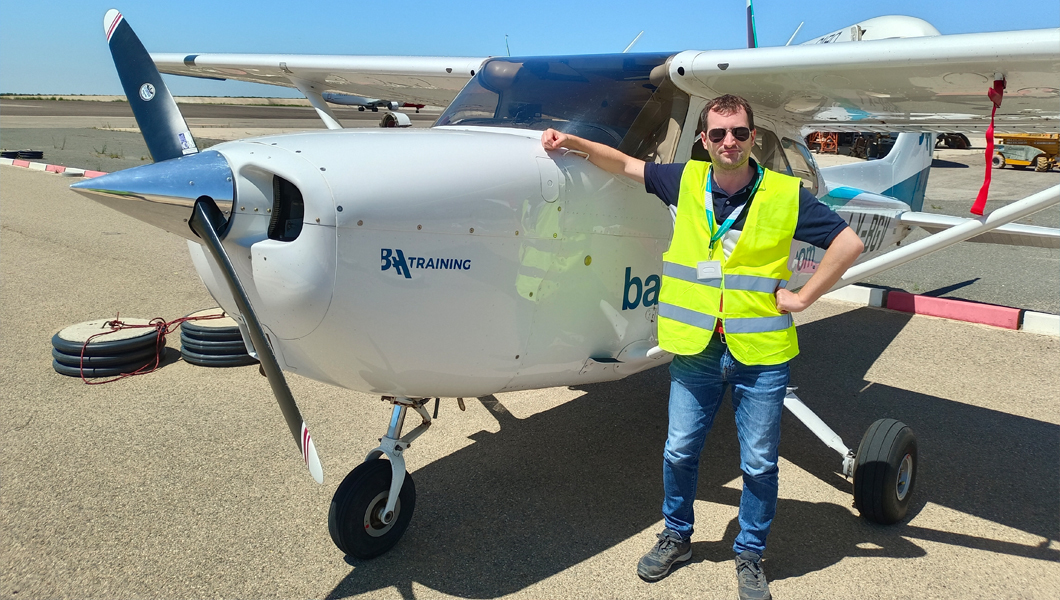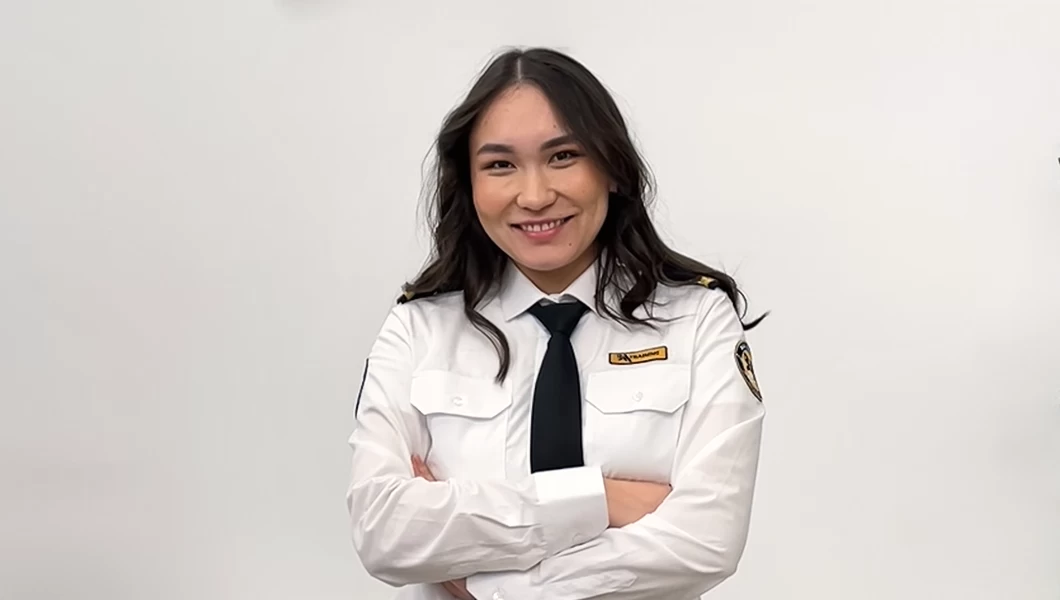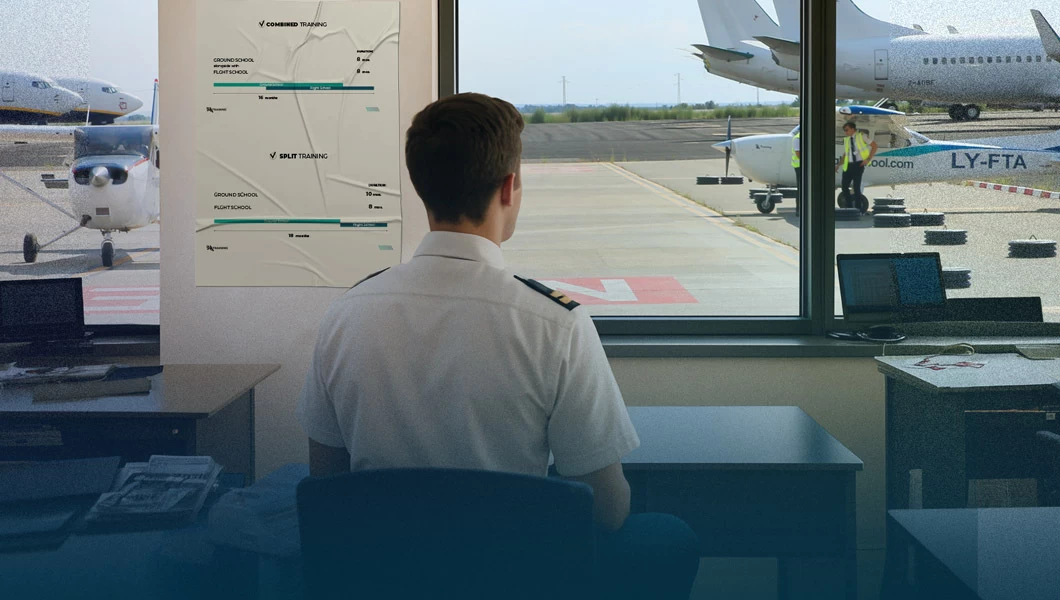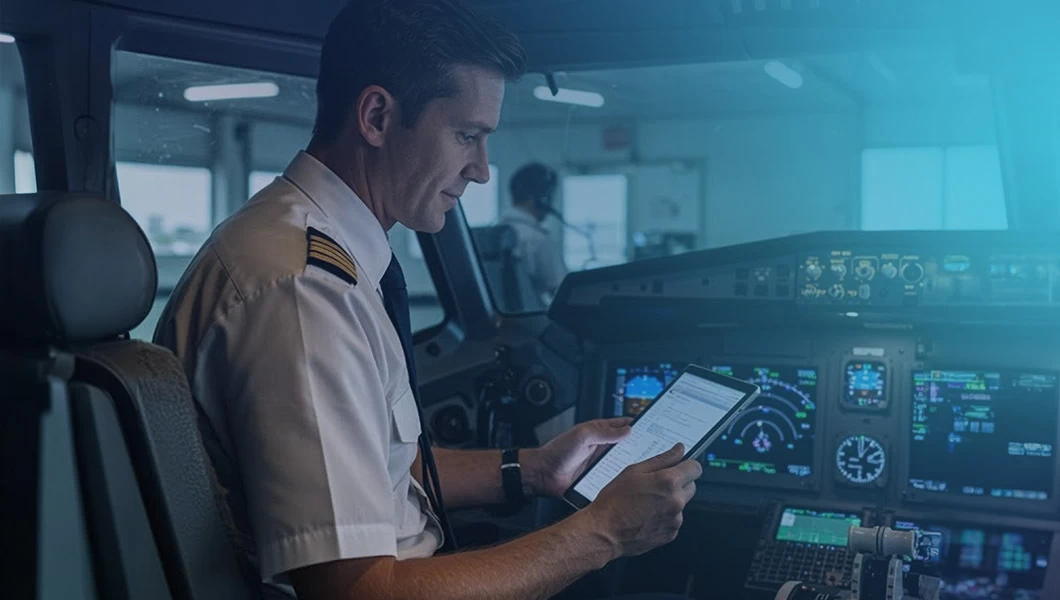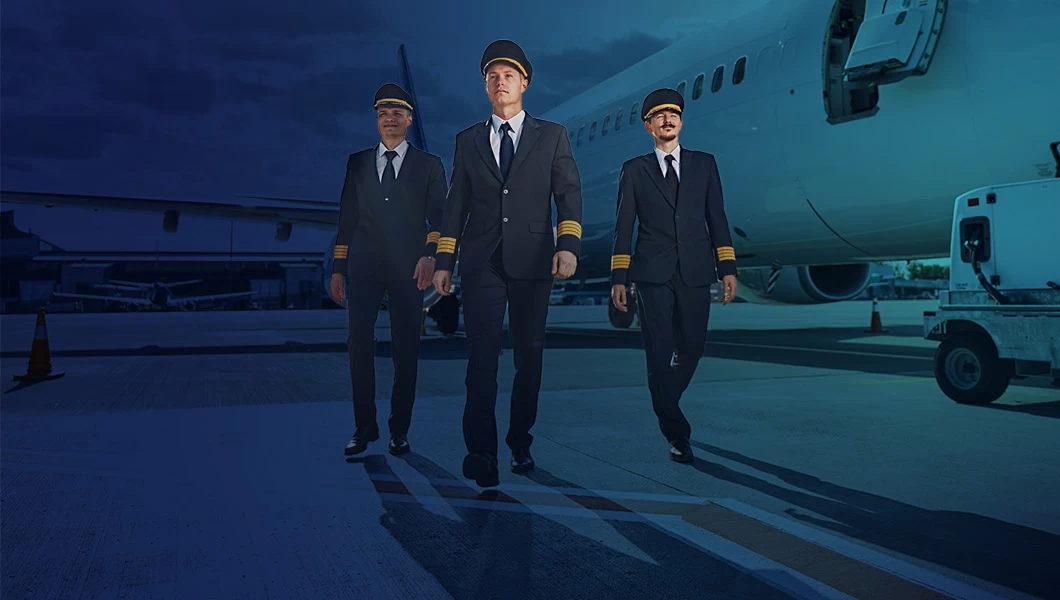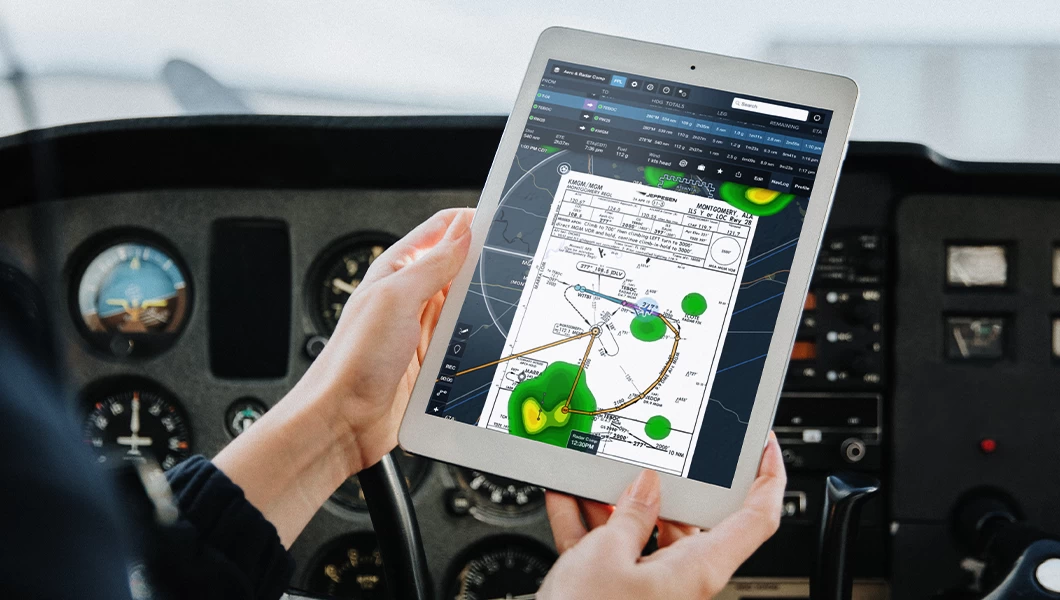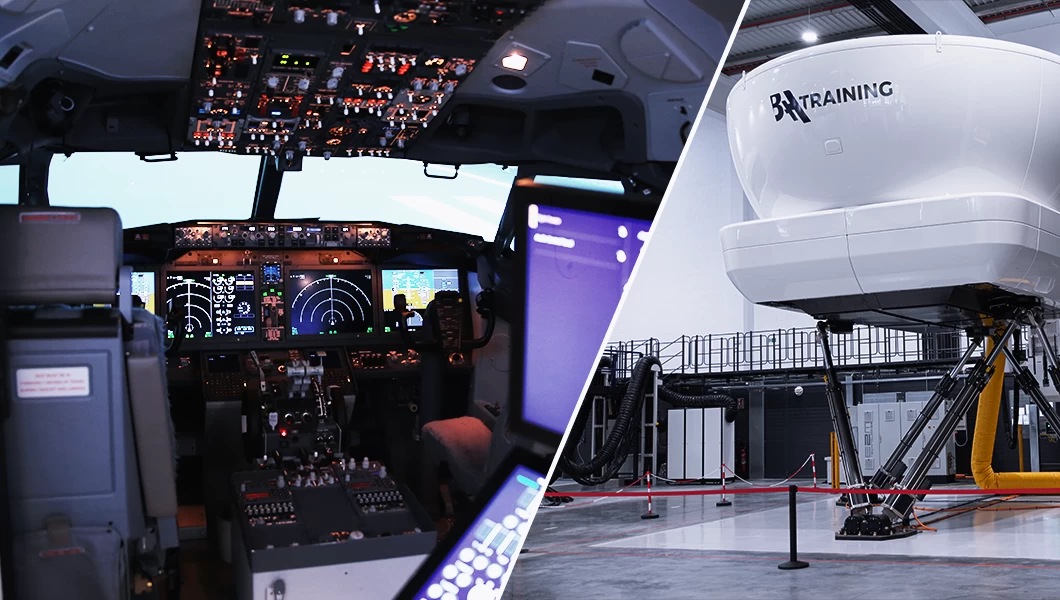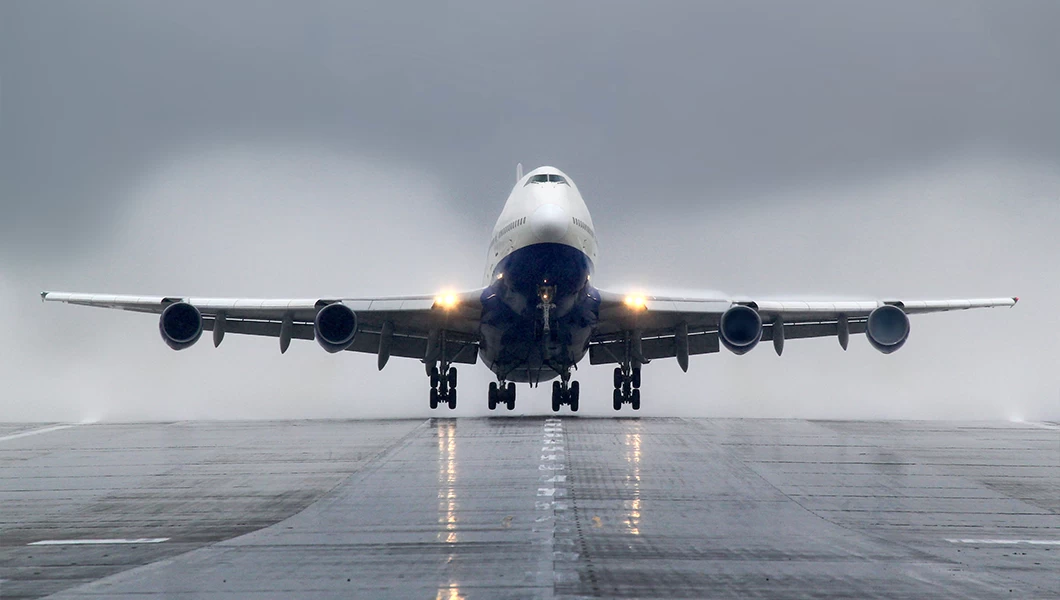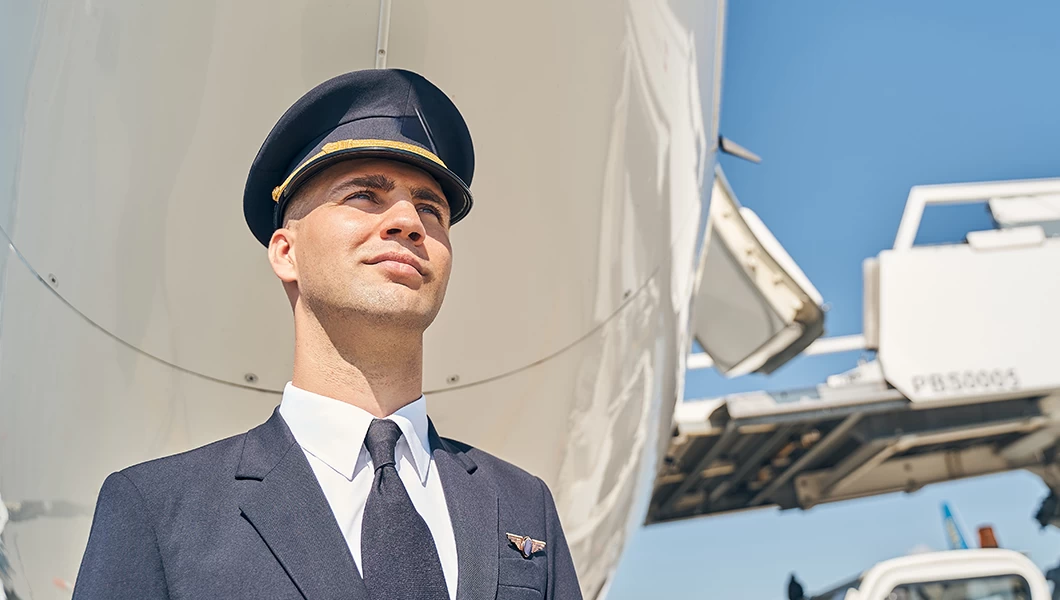Oriol, is it hard to become a Flight Instructor? What does one need to get there?
Like many other things, it depends on the interest you have. In aviation, flight hours are a key factor for judging the experience of pilots, but it’s not only about that; it’s also about competencies. A good Flight Instructor won’t necessarily have many hours of flight, but they should be able to transmit their knowledge effectively, be motivated to teach and listen to their students’ concerns and doubts. Attitude and passion are the crucial ingredients. It’s always easy to teach when you genuinely care about your students.
What are the different Flight Instructor certificates available?
The FI certificate can be expanded in various ways (FI PPL, FI CPL, FI IR, FI CRI…), and each allows you to teach specific instructor courses or phases of pilot training. However, at the beginning, you can’t choose too much. You start as a “FI restricted,” working under supervision and teaching basic training.
As you gain more experience as an instructor and log enough hours of flight training, more possibilities arise to expand the certificate. Eventually, you might find yourself as a Chief flying instructor or a Flight Instructor examiner.
What traits and skills are necessary for a successful Flight Instructor beyond technical experience?
Communication and leadership competencies are important, but creativity is also essential! Sometimes students don’t understand explanations, so you must find an alternate way to teach them. Choosing different phrasing might be enough, but in some cases, drawing or using metaphors and allegories can save the day.
And also, quite notably, patience! Students will make thousands of mistakes, and they will improve slower than you wish, but that’s okay!
What do you like most about your job?
Observing the progress of my students is the most rewarding aspect. When they graduate and get their license, I usually remember how inexperienced they were initially and feel the pride both in them and my job as they leave the school being professional pilots.
Is it a good interim option to raise funds and build flight time on the way to a commercial pilot career? Why?
Without any doubt. In fact, that’s the option chosen by many new pilots. Working as a Flight Instructor allows you to learn even more about aviation because only when you understand the topic can you effectively convey the message to students. So, it’s not just about improving your CV or achieving hours of flight – it also helps to consolidate your knowledge.
What are your future career plans?
I expect to continue flight instruction for many years! 😊
Similar ARTICLES
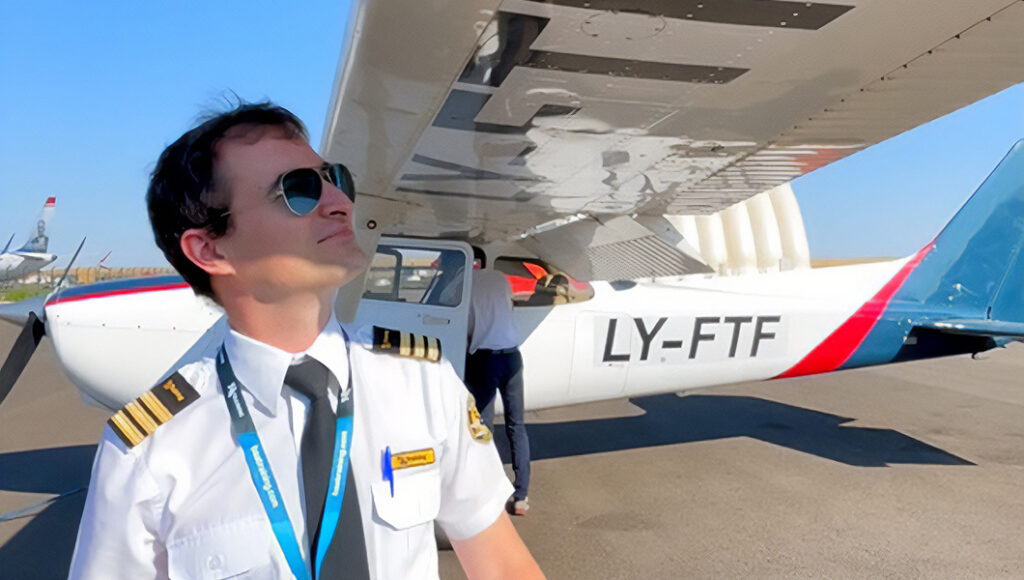
Can you share a memorable experience of a student you’ve trained and how it impacted you?
From time to time, there are students with more difficulties in learning. It’s not that they are worse than others, but they just need more time. As a Flight Instructor, I worry about them, but when they finally finish the training successfully, it impacts me in a positive way.
With the continuous advancements in technology and aviation, how do you think the role of Flight Instructors will change in the future?
In my opinion, it shouldn’t change too much. We can get different and better tools, but the role of a Flight Instructor and flight instructor training will in many aspects remain the same. We are doing theoretical knowledge instruction and are responsible for the safety of the flight during mutual flying. We know how students can improve and how to detect when they are under stress and help them handle it.
How should someone who wants to do flight instruction choose the organization to work for?
Initially, starting wherever you can find a job is typical, but I suggest going to a company that seeks quality training as soon as possible. There, you will have professional colleagues and leaders who will help you improve as an instructor and pilot. The willingness and desire to grow daily are essential, and that’s what you can find at BAA Training.
Your PILOT CAREER
starts with a first click
What does one need to know about the FI course at BAA Training?
If what you have just read resonates with you, and you feel instructing others could be your calling, go for it! To join a Flight Instructor course at BAA Training, you need a valid pilot license (JAA/EASA CPL, ATPL, or PPL), a Medical Certificate, and you should have completed at least 200 hours of flight time. Within 6 months before the beginning of the FI rating training, we will ask you to undertake a 1-hour pre entry flight test that will help us perform an assessment of competence.
If you are a complete beginner, you can still choose this path. Just make sure to fulfill all pre course requirements before applying. It will be a longer journey, but it’s absolutely worth it.
There are many Flight Instructor courses out there, but after attaining this certification at BAA Training, you get the opportunity to be hired by us, opening up a world of exciting career prospects. We launch new Flight Instructor groups twice a year, so please contact us to find out the precise dates and the course price.
Otherwise, if you need a standalone Instrument rating, Night Rating, PPL, Hours building, or a different course, do not hesitate to inquire since we provide a wide range of courses for an appropriate aircraft category.
